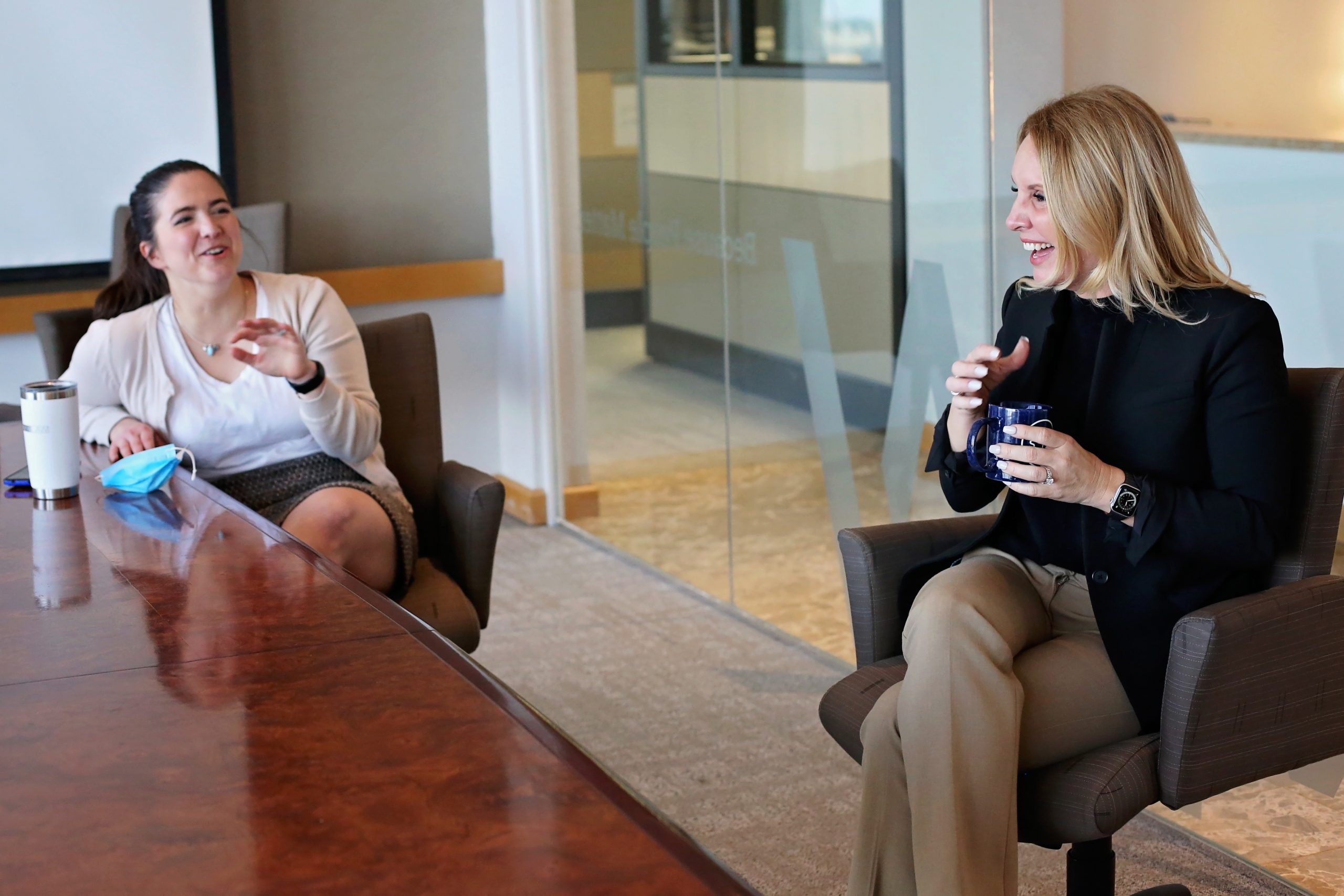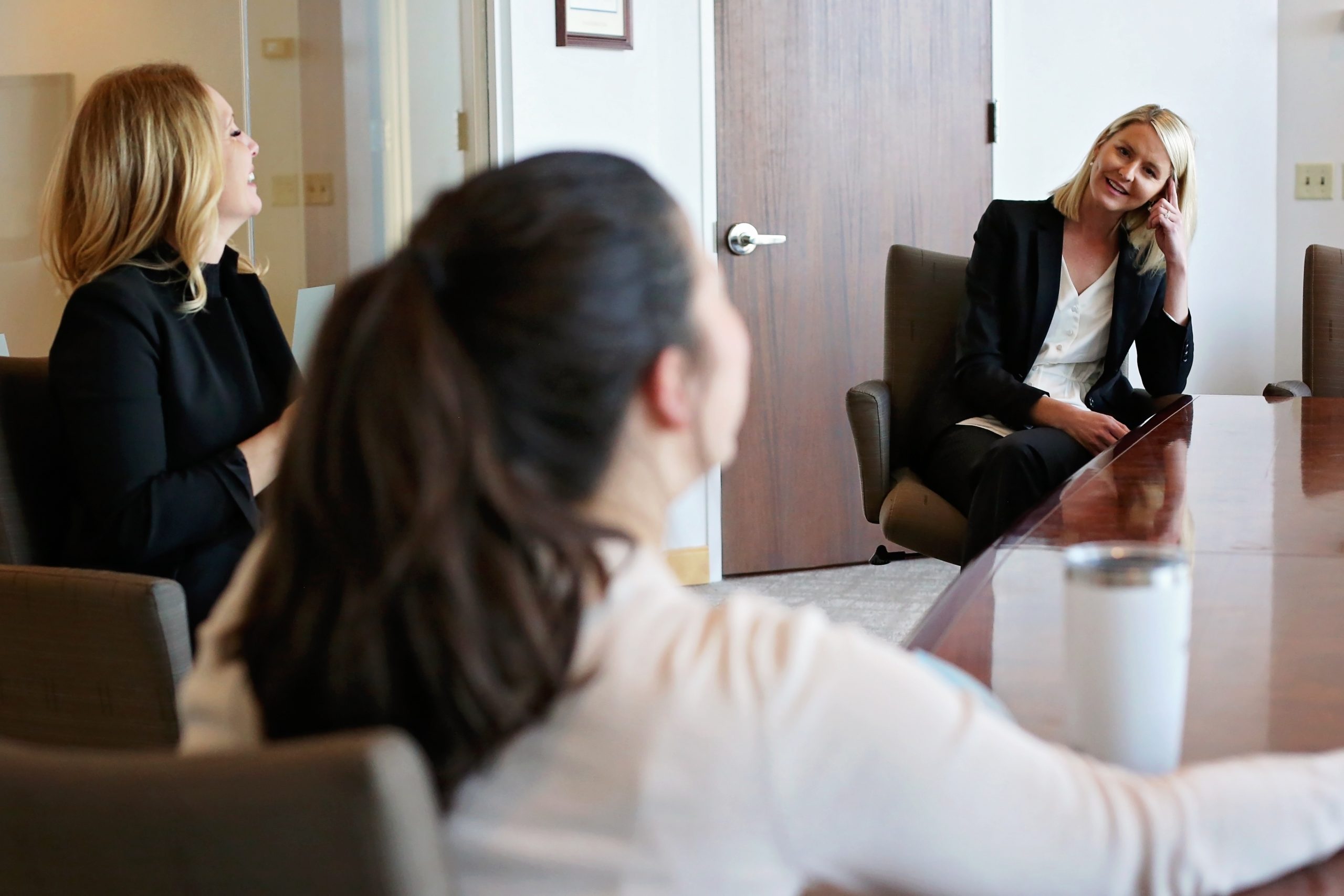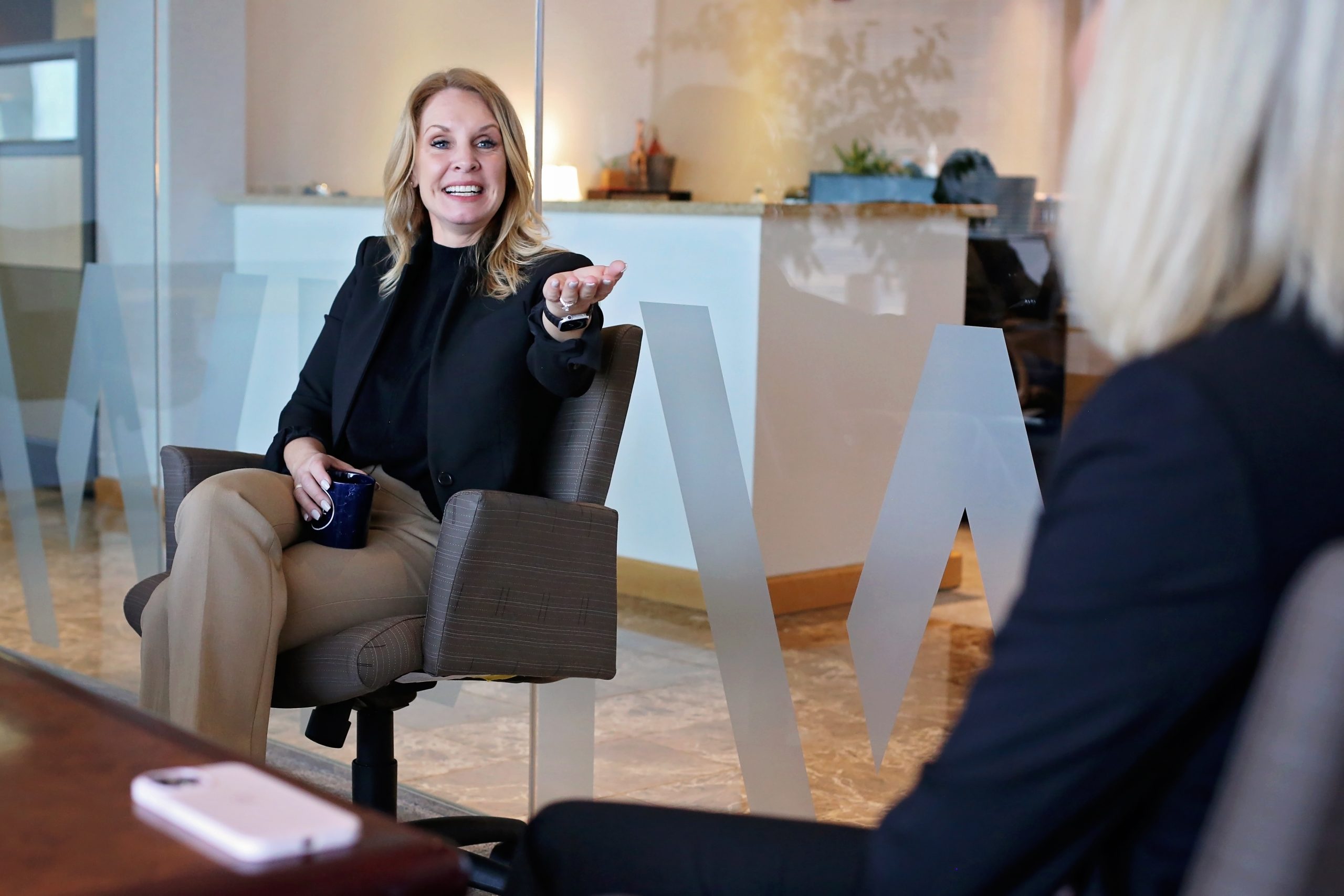Today is International Women’s Day, an observance that began in a handful of countries in the early 1900s as part of campaigns for equal rights and protections. Today, the observance celebrates the social, economic, cultural, and political achievements of women and marks a call to action for accelerating women’s equality and raising awareness against bias.
The legal industry has taken important steps in recent years to promote gender equality, and there has been a noticeable shift in breaking down stereotypes and celebrating differences – but there remains a call to action for increased gender equality in leadership positions where women’s unique perspectives and voices can be heard. Women are still fighting not just for a place at the proverbial leadership table, but to be heard when they get a seat there.
This year, we invited our female partners to participate in a roundtable discussion to explore the opportunities and challenges facing women in legal careers today and how they help to drive the positive cultural shift.
Exacerbated Challenges From Covid-19
Two years after the onset of COVID-19, the data makes clear that the global pandemic has set women in law behind. Various news outlets report that more than 865,000 women have left the labor force – more than four times the number of men who did the same. Women in law are undoubtedly included in that statistic. For SWMW Law Partner Sophie Zavaglia, the pandemic has exacerbated the work-life balance that was already difficult to manage.
“I found out shortly after the pandemic started that I was pregnant,” she said. “It’s already challenging to be both a mother and a lawyer, but to do it all in the middle of a pandemic was a new kind of challenge. I was fortunate to have a lot of support both at work and at home, but I know there are a lot of women in the industry who were not so lucky.”
While everyone felt the effects of not being able to socialize with friends and family during COVID-19, SWMW Law Member Lauren Williams, who was promoted to equity partner in 2021, believes the lack of socialization has affected women in the industry more than most notice.
“Our profession is very social and relationship-oriented – not having the opportunity to create or nurture those relationships has deeply affected us, especially those just coming out of law school,” she said. “Personally, I’ve really missed attending conferences, going to court, and nurturing the professional and congenial relationships with judges and court clerks. Developing those networks is such an important piece of our profession.”
SWMW Law Partner Holly Deihl saw the effects firsthand as the pandemic progressed.
“I sit on the Women in Law Division of our Bar Association and we held all of our discussions through Zoom throughout the pandemic. There were a lot of younger women in those meetings who would remark on that lack of socialization and felt like they were really missing out on the mentoring aspect,” she said. “Going to court and watching what other people do in court, learning different styles – they’re coming out of law school and not getting that. The socializing in your office and bouncing ideas of each other – they’re missing all of it. I feel like the young attorneys coming in right out of law school are at a real disadvantage. It’s really pushed us all back a little bit.”
Zavaglia agreed.
“So much of our profession is being at the right place at the right time and having people see your face and talk to you in person,” she said. “With everything shut down and the courts being closed, you’re missing out on vital opportunities to make connections that could lead to a job, a referral, or even getting a mentor that could change the whole trajectory of your career.”
“I don’t know where I’d be without the mentors I’ve had,” Williams added. “As women, having those connections is so important in not only attaining leadership positions, but in helping other women reach those heights, too.”
There is Still Work to Do
The legal profession looks significantly different than it did even 20 years ago. Attitudes have evolved, cultures have shifted, and the notion that it’s a “man’s world” is becoming more and more a thing of the past. But despite the inroads made by women in the last few decades, there is still much work left to be done.
“I don’t feel like I can complain too much because things have changed – we’re seeing more women in our profession than ever before,” Zavaglia said. “Men in the profession are much more respectful than they used to be. There are still isolated incidents, but overall, they’re much more subtle now. I feel privileged as a woman in this profession to have made partner, especially when the statistics say that this profession weeds out women. Even though we’re the majority of law students, women just don’t make it into leadership positions. And when they do, it’s overwhelmingly white women. To me, that’s the next barrier to overcome: seeing more women in leadership and seeing more women of color succeed.”
Researchers and reporters covering the legal profession regularly discuss the trend of female lawyers leaving the industry. Although more than half of U.S. law school students are female, only one-third become practicing lawyers and less than 20 percent of those earn equity partner status in private practice.
“I would love to see more women staying in the profession,” Deihl said. “Women are often made to feel like they have to stop working when they start families – maybe because they don’t feel like they have the support to be both mothers and attorneys. It reminds me of a situation I encountered at a firm I worked at before. I was pregnant at the time, and one of the older male partners congratulated me and said something about me not being around much longer. I was confused and not sure what he meant so I asked – his assumption was that I wouldn’t work after I had the baby. I told him I’d be back after 9 weeks, and he was perplexed. I was so taken aback. I think to some degree this is an attitude that still exists, that we can’t be both. We absolutely can be both.”
While Williams agrees there is still work to be done to have true equity and inclusion in the profession, she is inspired by the changes she’s witnessed in her time as an attorney.
“I feel like we’ve come a long way,” she said. “I see men in the profession that are now quick to verbalize their support of female colleagues. We see men coming to women’s events, speaking out, and making a stand on our behalf. I see women advancing and finally having a seat at the table and holding positions that we wouldn’t have historically had. It’s certainly empowering, especially now being an equity partner, myself. The fact that my opinion now matters this much is indicative that things have changed, and I’m hopeful that this means things will continue to change in the future.”
The Importance of Continuing the Conversation
While conversations of inclusion aren’t always comfortable, all three women agree they are necessary.
“My opinion is that the more we talk about anything, not just gender issues, that it’s a good thing,” Zavaglia said. “It helps people understand that they’re not alone. The more we dispel the mystery about what we’re experiencing and are open about our challenges and concerns, the less willing others will be to put up with those negative aspects of our industry. Silence only perpetuates and advances the negative parts of anything in life, and the more vocal we are the more ideas that are shared, the better things are for everyone.”
“The world is constantly changing and we need to be able to change with it,” Deihl added. “As women, we do look at things differently, but we need a variety of thoughts and we need those perspectives, too. That helps not only our industry, but the clients we represent.”
“These conversations are important in not only changing minds and opinion, but in letting other women know we have shared experiences,” Williams continued. “We’re sometimes made to feel isolated in the incidents of implicit bias, disparity, and exclusion that we experience. Talking about it lets women know that they’re not alone.”
Moving Forward
SWMW Law wouldn’t be able to serve our clients and community without the support of the women on our team. We celebrate our female attorneys and the many other women imbued with the same dedication to improve the lives of women in this generation and the many more to come. To close our International Women’s Day roundtable, we asked each partner what they and others can do to help the women in law following in their footsteps.
“I think it’s always important to lead by example,” Williams said. “I remember being a child in school and being in awe of a classmate’s mother. She was a successful professional, someone I perceived to be more than capable of managing a career and a family. She carried herself with confidence and poise, in such a way that really stuck with me and made me feel like I could grow up and achieve all of that as well. I still remember her and the example she set all these years later. I personally always strive to be professional, respectful, and build women up in front of others when I get the chance. Being in a leadership role, I also realize the importance of setting that example and it’s something I truly to take to heart.”
For Deihl, lifting other women up is what first comes to mind.
“I remember years ago when I was involved in a malpractice case that involved me taking several depositions from doctors,” she said. “There was a female attorney that represented one of the doctors and she and I got to know each other pretty well through it all. When the case settled, she sent me the sweetest card that said how impressed she was with me and what a joy it was to work with me – even though we were on opposing sides. It meant the world to me. Since then, when I come across a newer attorney, I try to make it a point to reach out to them and their boss to praise the work they do. Who doesn’t like to be told they’re doing a good job?”
“I think it’s important to continue to build upon what we’re already doing,” Zavaglia added. “It touches upon what Lauren said, but the visibility of women in leadership positions is invaluable. Seeing her rise through the ranks to be an equity partner in my time here is inspiring. It empowers me. Having more women in positions like that would be great for everyone – both men and women. We have different voices, and they’re all valuable. The more all of those voices are heard, the better we will all be for it.”





